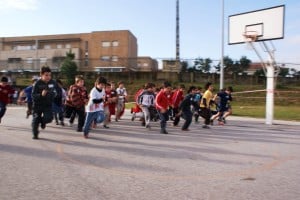
The results exhibited a novel finding: even healthy-weight children exhibit a decrease in physical activity when they are bullied—previous studies have established the same for overweight and obese children. Overweight and obese children also saw a decrease in health-related quality of life after being teased or bullied. Moreover, overweight or obese children who were teased reported poorer functional ability in physical, academic, and social pursuits.
These findings may encourage schools or youth organizations to adopt strong policies against teasing and bullying during physical activities.
“We hope our study will raise awareness that educators should consider bullying prevention during physical education and free play (recess) when kids may be discouraged from being physically active because of teasing experiences,” concluded Chad Jensen, BYU psychology professor and lead study author.
This research is published in the Journal of Pediatric Psychology.
Previous news in exercise:



 © 2025 Unyte Health US Inc.
© 2025 Unyte Health US Inc.